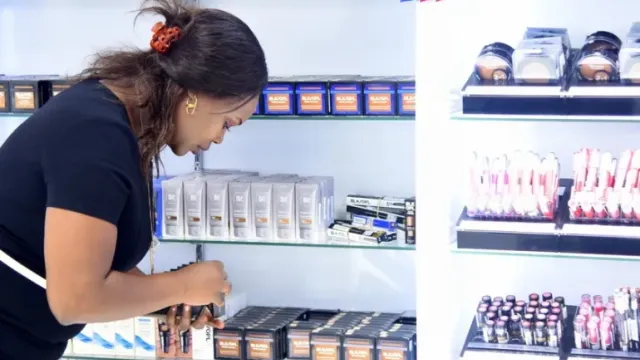Kenya's high price of beauty: Why your next visit to cosmetics shop will cost more

Kenya's high price of beauty: Why your next visit to cosmetics shop will cost more
Here’s another reason to worry as the New Year kicks in: It’s getting more expensive to get that regular hair and skin-care touch-up at the beauty salon.
In the Excise Duty (Excisable Goods Management System) (Amendment) Regulations, 2023 published by National Treasury Cabinet Secretary Njuguna Ndung'u, beauty products will now be slapped with Kes2.5 for an excise stamp up from Kes0.6, an increase of 316 percent.
The taxman is also targeting tobacco and the alcoholic sectors with higher excise stamp fees as the National Treasury moves to meet higher revenue targets amid high inflation.
In total, 14 categories of consumer products usually enjoyed by millions of Kenyans are on the taxman's radar with the government seeking to collect more taxes in the coming months.
The move to loop in the cosmetics sector is set to earn the taxman handsome returns from Kenya’s beauty industry, which is estimated to be worth Kes100 billion and growing.
At the moment, Kenya's cosmetics and beauty industry is projected to be expanding at the rate of nearly 400 percent per year, giving rise to thousands of jobs in manufacturing and distribution chains, beauty parlors, and training colleges focused on careers in skin care and hair care among others.
The country's growing beauty industry sector has caught the eye of global brands with Fenty Beauty by Rihanna being one of the latest entrants.
Read also: Excise tax adjustments are a bane to Kenya’s economy
Data shows that Kenya's cosmetics industry recorded Kes26.3 billion in imports of essential oils and perfumes in 2021 up from Kes21.9 billion in 2017.
The cosmetics industry survey has consumers shifting their preferences to natural and organic products as well as those that are considered friendly to the environment.
More and more consumers are also seeking items with several uses, such as those that hydrate the skin and slam brakes on aging. Included in the consumer goods for are beauty cosmetics for the face, lips, skin care products, fragrances and personal care products such as hair care, deodorants and shaving products.
In the latest proposals on new excise stamp fees, cigarette and alcohol users will also pay more, Kes5 from Kes2.8; juices Kes2.2 from Kes0.6.
The National Treasury has given Kenyans until February 3 to submit proposals and input on the proposed excise fees, which are expected to kick in starting 1st March 2023.
"In compliance with the Statutory Instruments Act, and on behalf of the Cabinet Secretary, the National Treasury and Economic Planning, the Commissioner General invites interested members of the public and stakeholders to submit their inputs and comments for consideration in the finalising of the above regulations," the notice from the Kenya Revenue Authority read in part.
Once effected, the excise fees will see prices of alcoholic products and cigarettes increase, just months after the taxman slapped higher taxes on the goods to factor in inflationary adjustments.
Last year, the alcoholic beverages industry protested that increases in tax rates through the Finance Act 2022 yielded a drop in alcohol consumption and subsequent lower collections by the revenue authority.
Currently, the industry estimates tax losses from the rate surges at 20 percent or a total of Kes.19.8 billion with excise duty adjustment digging the biggest hole in the taxman’s basket at Kes10.9 billion.
On jobs and income within the sector, about 35,364 jobs remain at risk as a result of tax rate hikes including 300 direct jobs, 864 occupations in the distribution chain, 30,600 jobs at on-trade locations such as bars and other entertainment joints, and 3,600 income-earning opportunities within the off-trade system.
The latest review on stamp fees is therefore set to aggravate the situation in an already weary industry even as the taxman comes under sustained pressure to set the stage for financing the Kes3.64 trillion 2023/24 budget.



